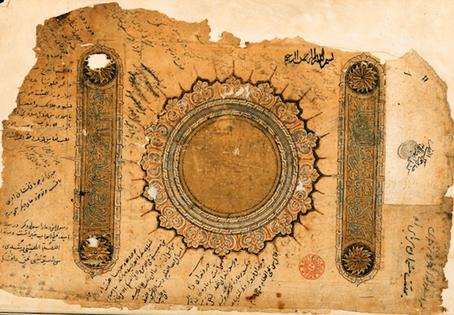3 things to learn about patience − and impatience − from al-Ghazali, a medieval Islamic scholar
Published in News & Features
From childhood, we are told that patience is a virtue and that good things will come to those who wait. And, so, many of us work on cultivating patience.
This often starts by learning to wait for a turn with a coveted toy. As adults, it becomes trying to remain patient with long lines at the Department of Motor Vehicles, misbehaving kids or the slow pace of political change. This hard work can have mental health benefits. It is even correlated with per capita income and productivity.
But it is also about trying to become a good person.
It’s clear to me, as a scholar of religious ethics, that patience is a term many of us use, but we all could benefit from understanding its meaning a little better.
In religious traditions, patience is more than waiting, or even more than enduring a hardship. But what is that “more,” and how does being patient make us better people?
The writings of medieval Islamic thinker Abu Hamid al-Ghazali can give us insights or help us understand why we need to practice patience – and also when not to be patient.
Born in Iran in 1058, al-Ghazali was widely respected as a jurist, philosopher and theologian. He traveled to places as far as Baghdad and Jerusalem to defend Islam and argued there was no contradiction between reason and revelation. More specifically, he was well known for reconciling Aristotle’s philosophy, which he likely read in Arabic translation, with Islamic theology.
Al-Ghazali was a prolific writer, and one of his most important works – “Revival of the Religious Sciences,” or the “Iḥyāʾ ʿulūm al-dīn” – provides a practical guide for living an ethical Muslim life.
This work is composed of 40 volumes in total, divided into four parts of 10 books each. Part 1 deals with Islamic rituals; Part 2, local customs; Part 3, vices to be avoided; and Part 4, virtues one should strive for. Al-Ghazali’s discussion of patience comes in Volume 32 of Part 4, “On Patience and Thankfulness,” or the “Kitāb al-sabr waʾl-shukr.”
He describes patience as a fundamental human characteristic that is crucial to achieving value-driven goals, and he provides a caveat for when impatience is called for.
Humans, according to al-Ghazali, have competing impulses: the impulse of religion, or “bāʿith al-dīn,” and the impulse of desire, or “bāʿith al-hawā.”
Life is a struggle between these two impulses, which he describes with the metaphor of a battle: “Support for the religious impulse comes from the angels reinforcing the troops of God, while support for the impulse of desire comes from the devils reinforcing the enemies of God.”
The amount of patience we have is what decides who wins the battle. As al-Ghazali puts it, “If a man remains steadfast until the religious impulse conquers … then the troops of God are victorious and he joins the troops of the patient. But if he slackens and weakens until appetite overcomes him … he joins the followers of the devils.” In other words, for al-Ghazali, patience is the deciding factor of whether we are living up to our full human potential to live ethically.
Patience is also necessary for being a good Muslim, in al-Ghazali’s view. But his understanding of how patience works rests on a theory of ethics and can be applied outside of his explicitly Islamic worldview.
It all starts with commitments to core values. For a Muslim like al-Ghazali, those values are informed by the Islamic tradition and community, or “umma,” and include things like justice and mercy. These specific values might be universally applicable. Or you might also have another set of values that are important to you. Perhaps a commitment to social justice, or being a good friend, or not lying.
Living in a way that is consistent with these core values is what the moral life is all about. And patience, according to al-Ghazali, is how we consistently make sure our actions serve this purpose.
That means patience is not just enduring the pain of a toddler’s temper tantrum. It is enduring that pain with a goal in mind. The successful application of patience is measured not by how much pain we endure but by our progress toward a specific goal, such as raising a healthy and happy child who can eventually regulate their emotions.
In al-Ghazali’s understanding of patience, we all need it in order to remain committed to our core principles and ideas when things aren’t going our way.
One critique of the idea of patience is that it can lead to inaction or be used to silence justified complaints. For instance, scholar of Africana studies Julius Fleming argues in his book “Black Patience” for the importance of a “radical refusal to wait” under conditions of systemic racism. Certainly, there are forms of injustice and suffering in the world that we should not calmly endure.
Despite his commitment to the importance of patience to a moral life, al-Ghazali makes room for impatience as well. He writes, “One is forbidden to be patient with harm (that is) forbidden; for example, to have one’s hand cut off or to witness the cutting off of the hand of a son and to remain silent.”
These are examples of harms to oneself or to loved ones. But could the necessity for impatience be extended to social harms, such as systemic racism or poverty? And as Quranic studies scholars Ahmad Ismail and Ahmad Solahuddin have argued, true patience sometimes necessitates action.
As al-Ghazali writes, “Just because patience is half of faith, do not imagine that it is all commendable; what is intended are specific kinds of patience.”
To sum up, not all patience is good; only patience that is in service of righteous goals is key to the ethical life. The question of which goals are righteous is one we must all answer for ourselves.
This article is republished from The Conversation, a nonprofit, independent news organization bringing you facts and trustworthy analysis to help you make sense of our complex world. It was written by: Liz Bucar, Northeastern University
Read more:
Mexico’s slow slide towards vigilante violence
As a rabbi, philosopher and physician, Maimonides wrestled with religion and reason – the book he wrote to reconcile them, ‘Guide to the Perplexed,’ has sparked debate ever since
What the ancient Indian text Bhagavad Gita can teach about not putting too much of our identity and emotions into work
Liz Bucar received funding from Templeton Religion Trust to support work on this topic.











Comments